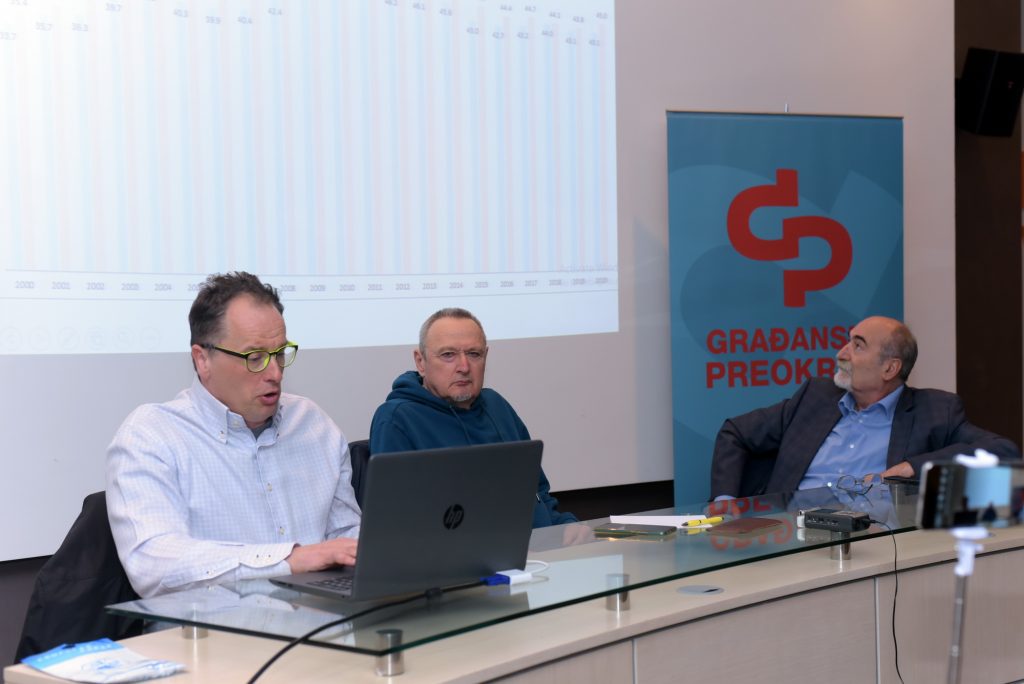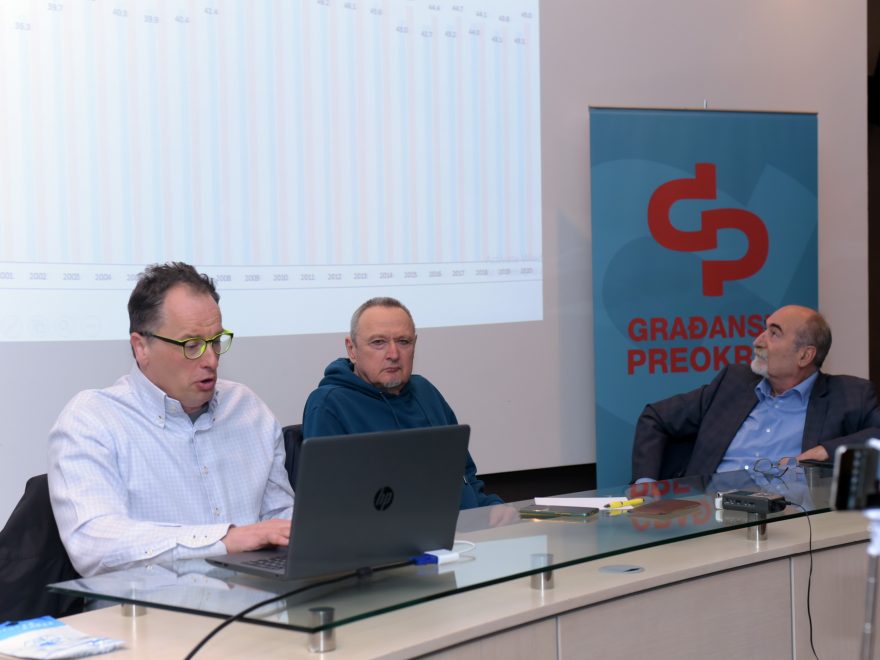Serbia’s business with China is harmful in many ways – economical, political, and environmental, said experts who have been participants in a series of panel discussions in Zrenjanin in the past two months, organized by association Gradjanski preokret.
“Although government officials are persistently talking about Chinese investments in Serbia, there are actually only three of them, Zidjin Mining in Bor, HBIS Group in Smederevo and Linglong in Zrenjanin, the rest are loans for infrastructure projects that will be repaid by coming generations,” warned the editor-in-chief of NIN, economist Milan Ćulibrk.
Infrastructure projects financed from Chinese loans are characterized by non-transparency, lack of tenders, and the engagement of Chinese companies and workers. Costs and environmental impact are not controlled, Ognjen Radonjic, a professor of economics at the Faculty of Philosophy in Belgrade, agreed with Culibrk. He stated that there will be no benefits from the three mentioned investments. “There are no domestic suppliers or advanced technologies in Chinese investments. They bring dirty and obsolete technology. There is no integration into foreign markets, they use us to have duty-free access to Europe. So, the tactic of our country is a “race to the bottom”. It comes down to increasing employment, mostly manual, to low technological intensity and environmental devastation”, Radonjić pointed out.

Milan Ćulibrk does not question the need for cooperation with China, but he points out that the problem is that our country agrees to all the conditions that the partnership with this country imposes on us. His question is how we got from the announced chip factory to steel, copper and rubber.
That it is absurd that the dirtiest technology in the form of the Linglong rubber factory was given the most fertile Banat country, said the professor of the Faculty of Biology, Dr. Biljana Stojković. “Such a ‘policy’ of industrialization means that we will not only be left without agriculture, rivers, and forests, but that life in the city will also become unbearable due to pollution,” she said.
“This is already happening in northeastern Serbia, where Zidjin operates: nature is completely devastated, and the landscape looks like a surface of Mars,” said Ljiljana Tomović, a professor at the Faculty of Biology. She warned that restoring the environment to its original state, after the work of such an industry, is almost impossible. Companies like Zidjin and HBIS Group operate in Serbia only because there is no independent and competent supervision of their work, the professors pointed out.
“The reason for that is that our state turned against its citizens, taking the side of companies. In addition, authoritarian regimes are what unite local dictators and China, a rising world power. However, that relationship is unequal: Serbia is under the colonization and economic occupation of China “, concluded sociologists and political scientists at the panel discussions in Zrenjanin.
“Our state-political apparatus enabled the occupation.” The state has been suspended on the territories of Chinese plants in Serbia, and the regulations are not being applied, “said Dr. Nemanja Zvijer from the Faculty of Philosophy in Belgrade. He assessed that the connection with China brings an even more rigid system to Serbia, which will additionally suspend the freedoms of citizens at the expense of commercial and political interests.
“Chinese business culture has already been transferred to our country,” said Dr. Mario Reljanović, a research associate at the Institute of Comparative Law. “Employment contracts of local workers engaged in Chinese companies in Bor and Zrenjanin have provisions on monitoring or supervision by employers, which is a criminal offense,” Reljanović pointed out.
It is certain that a part of the local population is ready to enter the arrangements of exploitation that bring slavery, which was noticed among the Vietnamese workers in Linglong, according to sociologist Dr. Jovo Bakić.
“The conditions in which the Vietnamese lived and worked met 30 out of 50 indicators of human trafficking, and only eight are enough to characterize that crime,” Mario Reljanović explained, noting that the prosecution and other institutions are not announcing this.
The most expensive saplings in history
Zrenjanin’s SNS commented on its results in the recent elections with a boastful statement, mentioning only one private company, explicitly Linglong. So far, the management of that company has remained silent on many questions from citizens, experts, and civil activists, but that is why they donated 150 saplings to Zrenjanin. It will be the most expensive paid trees in the history of the city and the state, noted Zrenjanin political scientist Miroslav Samardzić.

